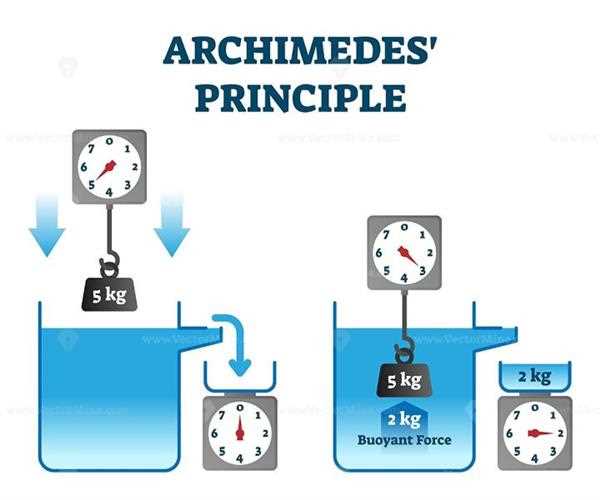Archimedes' principle is a fundamental concept in physics that explains how fluids exert buoyant force on objects submerged in them. This principle was discovered by the ancient Greek mathematician and scientist, Archimedes, in the third century BC.
The principle states that when a body is submerged in a fluid, it experiences an upward force equal to the weight of the fluid displaced by the body. In other words, the buoyant force acting on an object submerged in a fluid is equal to the weight of the fluid displaced by that object.
This principle has many practical applications, such as determining the density of an object, measuring the volume of an irregularly shaped object, and designing ships and submarines that can float and move in water.

Archimedes' principle is based on the concept of density, which is the mass of an object per unit volume. If an object is denser than the fluid it is submerged in, it will sink. If it is less dense, it will float. The buoyant force acting on an object is proportional to the volume of the fluid displaced by that object, regardless of the shape or composition of the object.
Overall, Archimedes' principle is a cornerstone of physics and helps us to understand the behavior of fluids and how they interact with objects.